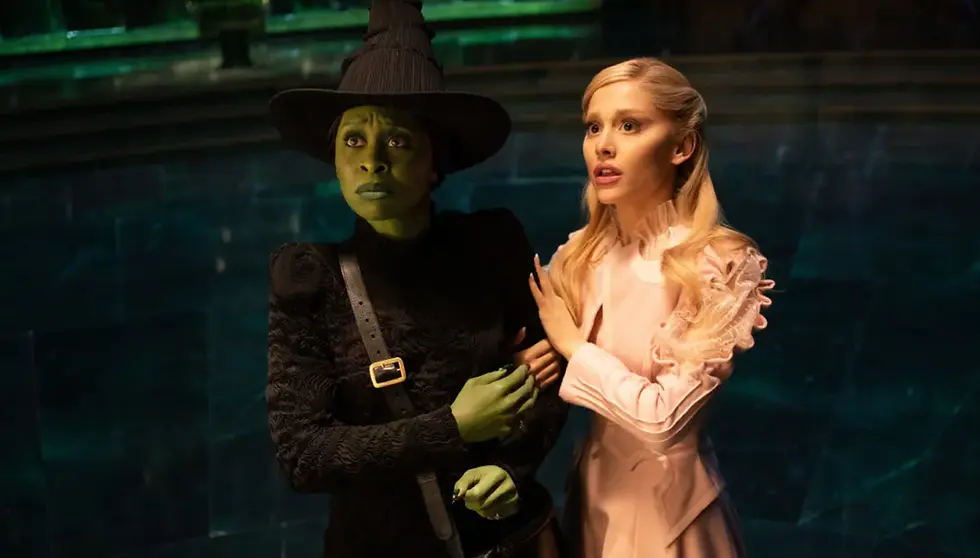Edinburgh Fringe 2022 stinkers
- comaweng
- Aug 28, 2022
- 4 min read
During this year's Edinburgh Festival Fringe, I filed 63 reviews, published on londontheatre1.com for anyone who wants to have a look. But there were a couple of shows that weren't reviewed, because, frankly, I thought they were awful. (I also Daniel Sloss' 2022 Fringe show, which was exactly what the show's title said it was: 'New Work in Progress'. Evidently, there's no point reviewing a WIP.) Here, for those who like reading about stinkers, are two previously unpublished reviews.
Love, Loss and Chianti - Assembly Rooms

I really didn’t see the point of this show – ninety-five minutes of drawn out pretentiousness that had some vividly descriptive poetry, but the staging felt totally unnecessary. The script is rich in vocabulary, such that the still and moving images projected onto a large screen are completely superfluous. The audience does not need a backdrop of a restaurant when Robert Bathurst’s character goes into one – the text provides more than sufficient imagery.
The first half was meant, I think, to be something poignant, about a man who is widowed, and the second brings together Bathurst and Rebecca Johnson’s entirely separate characters (from the first half, that is), an ex-couple who meet for lunch. But as this version of this production runs without an interval, it’s not immediately clear that there’s a different narrative going on all of a sudden.
Grief is portrayed very bizarrely on stage. Here, it’s artificial, and not just because people don’t talk like a poet when expressing grief – lines are delivered in an overblown, hammy fashion that tries to strain every emotional sinew in desperation, and the character just embarrasses himself in the process. Mind you, the guy in the second half embarrasses himself too (even if nobody sees it), in an extended scene in which, being drunk, he takes a wrong turning in a restaurant on his way back from the toilet and ends up somewhere that definitely isn’t the main dining area.
The women Johnson plays have relatively minor contributions to the narrative. Her first-half character was apparently selfish for dying of a terminal disease (the word ‘bitch’ may or may not have been used), and her second-half character is basically a sex object to be reconquered by an ex who still thinks of her as his property even though she’s his ex. Oh, and there’s an argument in which there is shouting on both sides, but the man is portrayed as rational and she as an overgrown spoiled child. There’s no point beating around the bush: this play is misogynistic.
The man in the restaurant is, to borrow a term used by many a comedian at the Edinburgh Fringe, a word beginning with c and rhyming with blunt. For some reason he thinks his favourite restaurant has gone downhill because there was a refurbishment at some point and the staff aren’t the same. The pompous ass thinks the world revolves around him: how dare they change the menu to reflect what people want and remain profitable? They should have kept the same menu as before just for him.
There were walkouts at the performance I attended, which was unsurprising to me. I only stayed myself to see if it would get any better. Nope – it continued to limp along, long after it has exhausted its welcome. Apparently the second half was meant to be a comedy. I didn’t laugh at all, and the end to this boring and sluggish production couldn’t have come soon enough. Bathurst and Johnson seemed to agree: just one bow at curtain call, and a swift departure.
One star
The Man Who Thought He Knew Too Much - Pleasance Dome

If anyone called Roger ‘Roger’ (which is, after all, his name) they would be corrected. It’s French, apparently, and therefore to be pronounced, as far as he was concerned, ‘roh-jerr’. He is a very uptight individual, who likes his routines. It takes a lot for him to be late for work, for instance, and when it happens, Roger Clement (presumably pronounced ‘cle-monn’) is extremely vexed. I have no idea what was going on half the time in this bizarre show – Rohjerr Clemonn’s office is blown to smithereens before he got there, and, as his anger (rather than relief he wasn’t killed) hits the stratosphere, there’s enough energy to blast him around the world and even beyond in an attempt to find out who it was, if I understood correctly, who made him late and who tried to kill him.
Because, y’see, it’s all about him, without a scintilla of sympathy or respect for anyone who was in the office and didn’t survive the terrorist attack. The plotline is entirely fictional, of course, but it remains a very odd assertion that Rohjerr had single-handedly prevented the assassination of JFK. He also appeared to have (again, wholly and entirely all on his own) stopped the possible outbreak of nuclear war between world powers. All hail Dear Rohjerr.
It was consummately gripping stuff to whom it was consummately gripping stuff, but there was so much happening I couldn’t make sense of it. Far too many characters were portrayed, and it was difficult to get to know very many of them (apart from, unsurprisingly, Rohjerr). The show was jumping around between scenes and continents so quickly that for all the physicality and creativity, I longed for the traffic cop in Come From Away to come along and instruct them to ‘STFD’ – “slow the f*ck down”. An exhausting and bewildering experience.
Two stars




Comments